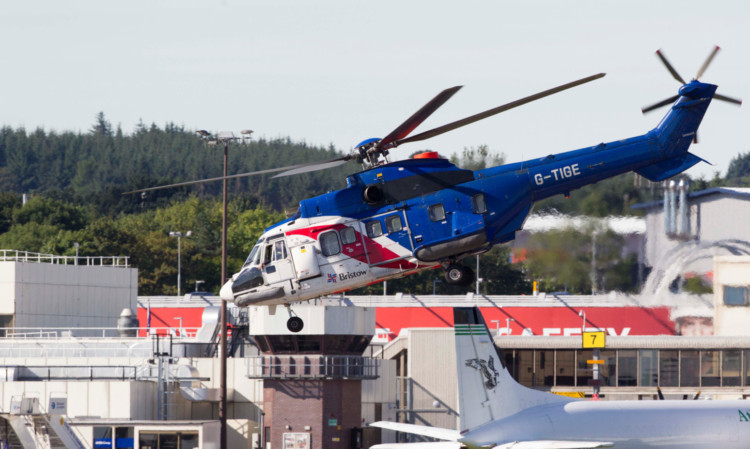
Eurocopter Super Pumas may have been given the all clear to fly again by the Helicopter Safety Steering Group, but they’ve proved to be anything but super.
The sun was out and the beach was mobbed with hordes of peely-wally sun seekers.
I along with my fellow band members lay on the dunes of Gullane Sands scoffing our meagre rations (crisps and lager) and arguing if we should have another game of footie or head back to the off licence for more supplies.
Suddenly, without a word, I was off, running full pelt into the freezing waters of the Forth as others from the beach did the same.
Two teenage dafties who couldn’t swim had capsized their canoes and were in the process of drowning.
I pulled one lad back to the shore and the other was saved by two “members of the public”.
Next day a newspaper mentioned the rescue but credited two undercover cops, no mention of me. My ego was bruised so I phoned the paper.
The reporter told me that under normal circumstances he’d run a follow up piece but there had been an explosion on a North Sea oil rig, so perhaps I could call back tomorrow. Of course, I never did.
That was just over 25 years ago . . . the rig was called Piper Alpha.
It was a catastrophic event that changed the lives of those families of the 167 men tragically killed and the “lucky” 61 survivors.
It was a disaster that also brought home the very real dangers offshore workers face.
Importantly the horrendous loss of life exposed the very lax safety measures in place at the time and the disregard some operators had for the workforce.
Thankfully since then more than 100 new safety measures have been introduced, improving working conditions for the riggers.
But a lot more can and should be done, especially when it comes to their transportation.
The recent spate of helicopter crashes and the resultant loss of life has to be quickly addressed and a solution found.
The UK Oil and Gas industry is vital to the economy, generating almost £40 billion a year, but more importantly the lives and conditions of its 340,000 workers must be given the highest priority.
Their safety must be guaranteed, especially those 18,000 a day flying to or from work.
The old joke is that helicopters are just spare parts flying in different directions, and as someone who flies one as a hobby that may not be too far from the truth.
But this is no joke, not when so many lives are being lost.
Helicopters are still the best mode of transport available, but they should also be the safest. A solution must be found, or rather a more reliable model bought and brought in without delay.
Eurocopter Super Pumas may have been given the all clear to fly again by the Helicopter Safety Steering Group, but they’ve proved to be anything but super.
The Civil Aviation Authority said on Friday that, based on current information, the crash off Shetland was not caused by airworthiness or technical problems.
But I think and I know many oil workers do to that there have been far too many tragedies and close shaves over the years for them to be ever fully trusted.
In my opinion this workhorse of the North Sea is unreliable and if the industry is to recover and confidence to be restored then Oil and Gas UK must dip into its own vast reserves of wealth and have every single one of them replaced with something that is both safe and reliable.
PS I forgot to mention that the two lads saved that day long ago were picked up and taken to hospital by . . . yep, a helicopter!

Enjoy the convenience of having The Sunday Post delivered as a digital ePaper straight to your smartphone, tablet or computer.
Subscribe for only £5.49 a month and enjoy all the benefits of the printed paper as a digital replica.
Subscribe